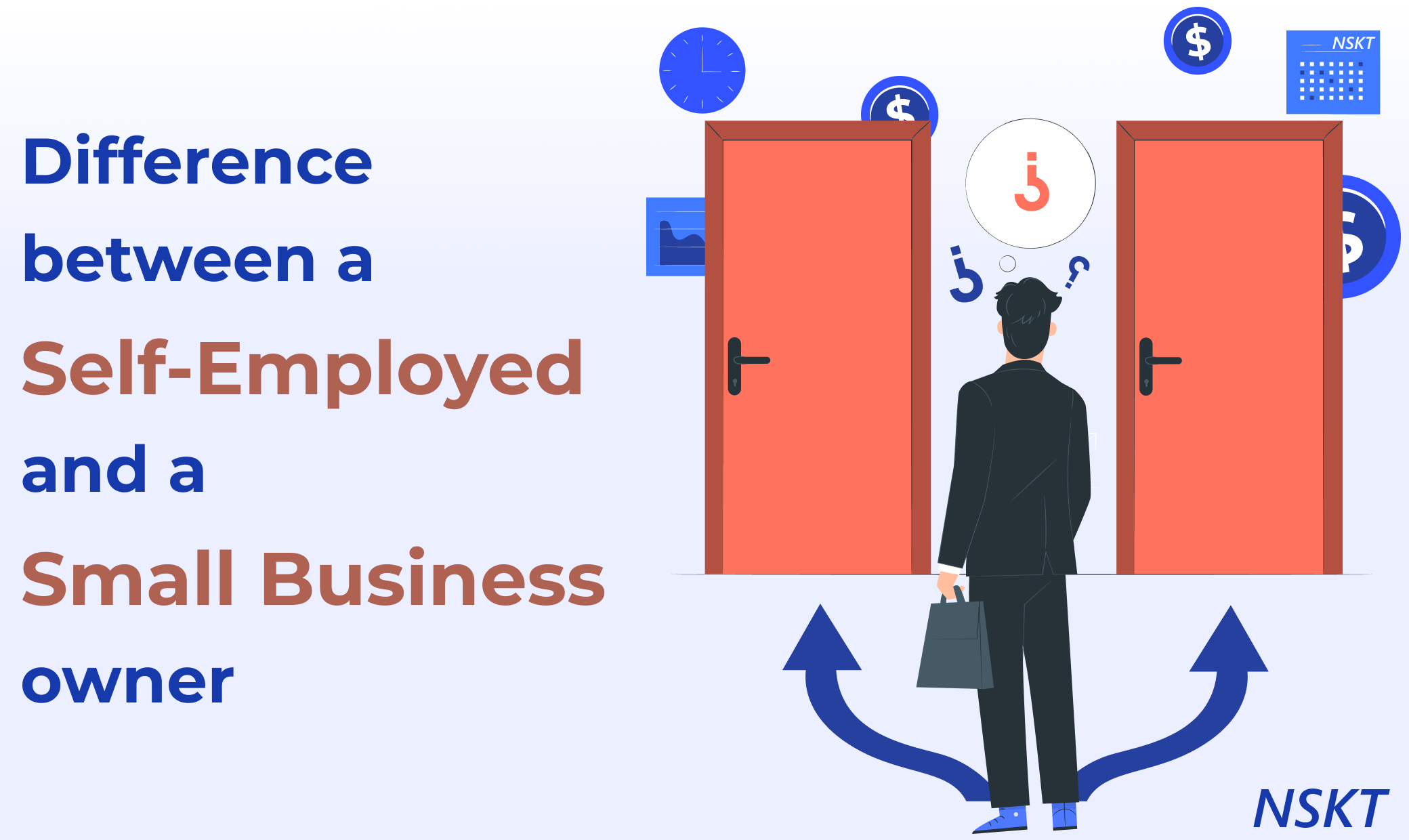Should You Transition from Being self-employed to a Small Business owner?
There are several similarities and differences between being self-employed and owning a small business. However, there are different rules for both types of earnings when it comes to filing taxes. Let's dive deep and know the difference between these two.
Difference between a self-employed and a small business owner
When you run a small business, you often have people to work for, whom you pay a salary for the work they do. However, when you are self-employed, you are the business, and you solely earn everything and are responsible for all the losses and profits.
Examples of self-employment:
- Sole proprietor: A single person in charge of the whole business is considered a sole proprietor. They take the business profits as personal income.
- Independent contractor: As an independent contractor, often called a freelancer, you produce work for others, but you are still your boss. You work on a contractual basis with clients of your choosing, but you are not their employee.
- Partnership: As a partnership, you have all the qualities of a sole proprietorship, but you share ownership of the business with two or more people who are your “partners.”
What is a small business?
You hire employees to work for you as independent contractors in a small business. The business can be classified as a separate entity, meaning you have less personal liability. If you have part-time or full-time employees, you are responsible for collecting their taxes and obtaining workers’ compensation insurance.
Tax difference between the self-employed and small business owner
For a self-employed:
- Your business tax deductions, profits, and losses are reported on your personal income tax return using Schedule C
- If you make more than $400 per year, you are responsible for paying self-employment tax to cover your Medicare tax and Social Security contributions.
- You might pay quarterly estimated taxes throughout the year to avoid any penalties or a large tax bill at the end of the year
For a small business owner:
- Small businesses are taxed differently based on your business type such as a limited liability company (LLC) taxes can be passed through to the owners, or you can elect to be taxed as a corporation
- If you are taxed as a corporation, you will pay corporate taxes, which is a tax on your profits (your revenue minus the cost of goods sold and other business operating costs)
- You use Form W-2 to report your employees’ incomes and how much federal, state, or local income tax they have withheld
- If you hire independent contractors, you must report any payments of $600 or more using Form 1099-MISC or Form 1099-NEC
Thus, businesses need to think about whether they want the transition. NSKT Global, a consulting firm, guides you better for the transition and helps you get the right solution when you are confused about the transition.
Our experts help you analyze the pros and cons of transitions and provide the exact solution for the transition by evaluating all the aspects of the business.



